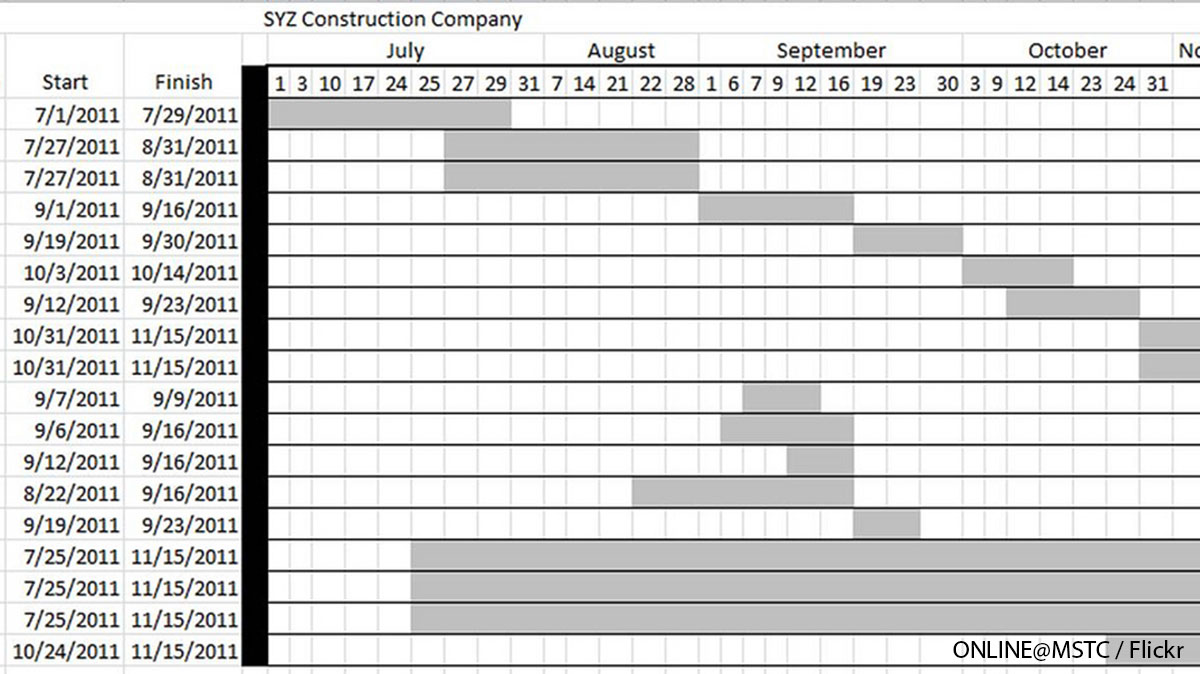Escape To The Countryside: A Step-by-Step Relocation Plan

Table of Contents
Finding Your Perfect Countryside Retreat
Finding the right property is the cornerstone of your countryside escape. This involves careful consideration of several key factors.
Defining Your Ideal Location
Before you even start browsing property listings, take time to define what "countryside" means to you.
- Proximity to Amenities: How important is proximity to schools, hospitals, shops, and other essential services? A remote location offers ultimate peace but requires careful consideration of travel times for necessities.
- Commute Considerations: If you plan to continue working in a city, factor in your daily commute time. Can you work remotely? Reliable internet access is crucial for many remote workers considering a countryside escape.
- Community Character: Research potential locations thoroughly. Visit local villages, talk to residents, and get a feel for the community's atmosphere. Does it align with your lifestyle and values? Look for community events, local pubs, and active social groups.
- Landscape Preferences: Do you envision rolling hills, rugged mountains, or a coastal escape? Your preferred landscape will significantly influence your property search and overall countryside experience.
- Budget Constraints: Property prices in the countryside vary enormously depending on location, size, and condition. Establish a realistic budget before you start your search, factoring in potential renovation costs.
Searching for Properties
Once you've defined your ideal location, it's time to start your property hunt.
- Online Property Portals: Utilize popular websites such as Zillow, Rightmove, Realtor.com, and others specific to your country. Set up alerts for new listings matching your criteria.
- Local Real Estate Agents: A local estate agent specializing in rural properties is invaluable. They possess in-depth knowledge of the area and can help you find properties that might not be listed online.
- Property Auctions: Attending local property auctions can offer opportunities to secure properties below market value, but it's crucial to understand the process and associated risks.
- Networking: Word-of-mouth can unearth hidden gems. Talk to locals, attend community events, and let people know you're searching for a property.
- Patience is Key: Finding the perfect countryside retreat takes time. Don't rush the process. Take your time to thoroughly research and visit potential properties before making a decision.
Financial Planning for Your Countryside Escape
Moving to the countryside is a significant financial undertaking. Careful planning is crucial to avoid unforeseen expenses.
Budgeting for Relocation Costs
Create a comprehensive budget that includes all anticipated expenses.
- Property Costs: This is your largest expense – purchase price or rental costs, including any associated legal fees and stamp duty (if applicable).
- Moving Expenses: Factor in transportation costs, packing materials, and potential storage if you're downsizing.
- Renovation Costs: Older properties often require renovations. Budget for repairs, upgrades, and any desired aesthetic changes.
- Utility Costs: Research local utility providers and estimate monthly costs for water, electricity, gas, and internet. Rural properties may have higher energy consumption.
- Local Taxes: Understand local property taxes and any other applicable local taxes or levies.
Securing Financing
Explore various financing options to fund your countryside escape.
- Mortgages: If buying a property, explore different mortgage options from various lenders. Seek professional mortgage advice to secure the best deal.
- Savings and Personal Loans: If buying a smaller property or covering relocation costs, use your savings or consider taking out a personal loan.
- Government Grants/Incentives: Research any government grants or incentives available for rural relocation in your area. Many regions offer support for rural development.
- Financial Advisor: Consult a financial advisor for personalized advice on budgeting, financing options, and long-term financial planning for your countryside lifestyle.
Practicalities of Countryside Living
While idyllic, countryside living presents unique practical considerations.
Utilities and Services
Ensure you understand the availability and cost of essential services.
- Internet Access: Reliable internet access is crucial, especially if you work remotely. Check availability and speeds before committing to a property.
- Utility Providers: Research local providers for water, electricity, and gas. Compare prices and contract terms.
- Waste Disposal: Understand the local waste disposal and recycling services. Rural areas may have different systems than cities.
- Emergency Services: Familiarize yourself with the local emergency services and response times.
Community Integration
Embrace the opportunity to connect with your new community.
- Local Events: Attend local fairs, festivals, and community events to meet your neighbors and get involved.
- Community Groups: Join local clubs and groups based on your interests (gardening, hiking, book clubs, etc.).
- Volunteer Work: Getting involved in local initiatives is a great way to integrate and contribute to the community.
- Embrace the Pace: Countryside living often means a slower pace of life. Embrace it and enjoy the friendly atmosphere and strong sense of community.
Embracing the Countryside Lifestyle
Finally, prepare to adapt and enjoy the unique aspects of your new environment.
Hobbies and Activities
Explore the opportunities for outdoor pursuits and local experiences.
- Outdoor Recreation: Enjoy hiking, cycling, fishing, birdwatching, or other outdoor activities available in your chosen location.
- Local Markets: Discover local farmers' markets and artisan shops for fresh produce, local crafts, and unique products.
- Seasonal Events: Participate in seasonal events and festivals to experience local culture and traditions.
- New Hobbies: Use the opportunity to take up new hobbies like gardening, crafting, or painting, inspired by your surroundings.
Adapting to a Different Pace of Life
Adjusting to a slower pace of life is a key part of successfully escaping to the countryside.
- Relaxation and Mindfulness: Embrace a more relaxed approach to daily life, prioritizing well-being and reducing stress.
- Digital Detox: Disconnect from technology more frequently to appreciate the natural world and enjoy moments of peace and quiet.
- Appreciation of Nature: Take time to appreciate the beauty of your surroundings and engage with nature.
- Community Connection: Build strong relationships with your neighbors and engage with the local community.
Conclusion
Escaping to the countryside is a significant life decision, but with careful planning and preparation, it can be a deeply rewarding experience. By following the steps outlined above – from finding the perfect property and securing financing to embracing the unique aspects of rural living – you can successfully plan your escape to the countryside. Don't delay your dreams – start planning your countryside escape today! Research your ideal location, carefully assess your finances, and prepare for a life filled with tranquility, nature, and a strong sense of community. Begin your countryside relocation journey now!

Featured Posts
-
 The Ultimate Guide To Escaping To The Country
May 24, 2025
The Ultimate Guide To Escaping To The Country
May 24, 2025 -
 Kuda Propali Pobediteli Evrovideniya Poslednie 10 Let
May 24, 2025
Kuda Propali Pobediteli Evrovideniya Poslednie 10 Let
May 24, 2025 -
 Memorial Day Poster Contest Hawaii Keiki Celebrate With Lei Making Art
May 24, 2025
Memorial Day Poster Contest Hawaii Keiki Celebrate With Lei Making Art
May 24, 2025 -
 Escape To The Country Nicki Chapmans 700 000 Property Investment Revealed
May 24, 2025
Escape To The Country Nicki Chapmans 700 000 Property Investment Revealed
May 24, 2025 -
 Conchita Wurst And Jj Eurovision Village Concert Esc 2025
May 24, 2025
Conchita Wurst And Jj Eurovision Village Concert Esc 2025
May 24, 2025
Latest Posts
-
 Texting Pairs Daring 90mph Refuel During Police Chase
May 24, 2025
Texting Pairs Daring 90mph Refuel During Police Chase
May 24, 2025 -
 Drivers Face Significant Delays On M6 Southbound After Crash
May 24, 2025
Drivers Face Significant Delays On M6 Southbound After Crash
May 24, 2025 -
 Police Helicopter Pursuit High Speed Refueling And Texting
May 24, 2025
Police Helicopter Pursuit High Speed Refueling And Texting
May 24, 2025 -
 M56 Collision Car Rollover Results In Motorway Casualty
May 24, 2025
M56 Collision Car Rollover Results In Motorway Casualty
May 24, 2025 -
 Astonishing Police Chase Pair Refuels At 90mph While Texting
May 24, 2025
Astonishing Police Chase Pair Refuels At 90mph While Texting
May 24, 2025
